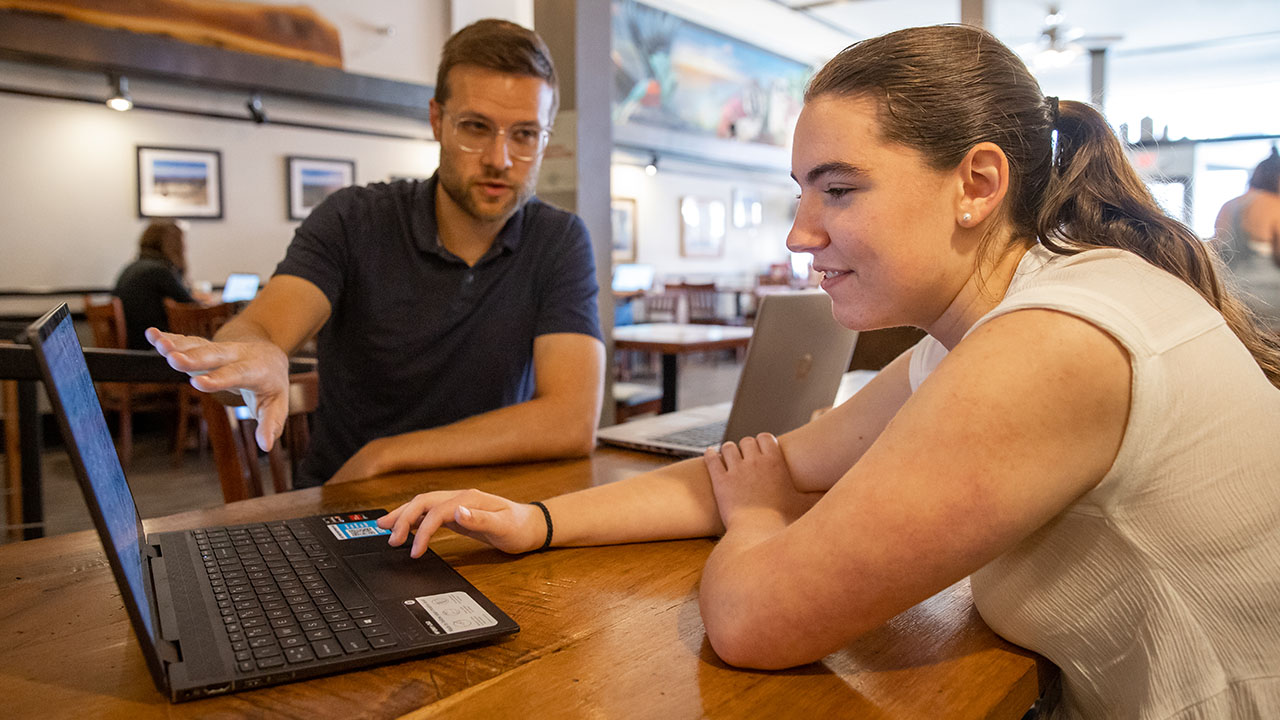
Through the University of Wisconsin-Platteville Summer Undergraduate Scholar Program, senior Kimberly Cummings received the opportunity to investigate the topic of psychological profiling. Cummings, a criminal justice and psychology double major, presented her research project titled, “Meta-Analysis of Psychological Profiling: Overall Accuracy and Factors that Influence Accuracy” in July at the Markee Pioneer Student Center in front of her peers, faculty and community members. She is now in the process of finalizing her manuscript.
“[Psychological profiling] is when investigators or psychologists look at crime scene behaviors to determine the type of offender who would commit that crime,” explained Cummings, a native of Gleason, Wisconsin. “I’m very interested in psychological profiling. I looked into it because there is not a lot of empirical evidence supporting it. I want to tell people, while this topic is fascinating, it’s not scientifically accepted or supported.”
Cummings embarked on her research in May, sifting through more than 13,700 articles using five databases. Throughout her nearly three-month project, she worked with faculty mentor Dr. Alec Eshelman, assistant professor of psychology, meeting weekly to discuss her progress.
“Dr. Eshelman and I made super strict inclusion and exclusion criteria. When I read the titles and abstracts of all the articles, I could see which ones would be irrelevant,” said Cummings. “I could only use eight of them for the meta-analysis. A lot of the articles I found discussed things related to psychological profiling but not exactly looking at crime scenes to determine characteristics. There are few empirical studies. My final inclusion and exclusion for narrowing down the studies was it had to be experimental, and the group had to have someone who could create a psychological profile.”
As Cummings navigated her results, she found out there is a small effect size for psychological profiling accuracy, meaning it can be slightly accurate – an answer Cummings was not expecting.
“It’s hard to draw specific conclusions with it, but it’s positive findings for psychological profiling,” she said. “When I broke it down by crime, I found that murder cases were the least successful, which is interesting because psychological profiling was made for serial crime. Sex offense and arson were more accurately profiled. When I broke it down by expertise, there were three groups [college] students, police officers and expert profilers. Expert profilers were the only ones that were accurate.”
Cummings emphasized the importance of being able to conduct undergraduate research. Through this experience, Cummings said she learned many new technical skills, including the innerworkings of RStudio – a coding-based software program – and Microsoft Excel, but the most important thing she learned was self-confidence.
“Dr. Eshelman has been wonderful. Our goal at the beginning was for me to take charge and do it as independently as I was comfortable with, which I appreciated,” she said. “If you don’t push yourself, you’re never going to learn and grow.”
The upcoming academic school year is Cummings’ final year at UW-Platteville, and she has plenty of goals. The first is getting her manuscript published in the Journal of Investigative Psychology and Offender Profiling, followed by applying to graduate school, specifically clinical psychology doctoral programs.
“It’s important to take academic risks,” said Cummings. “The rewards are out there.”